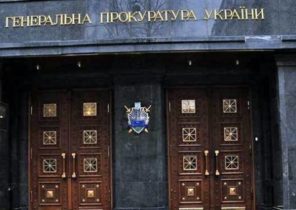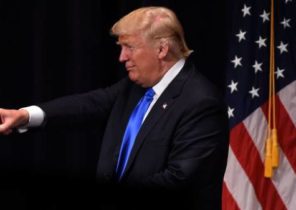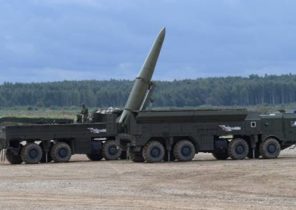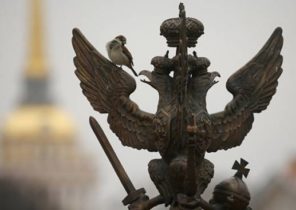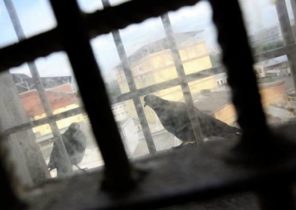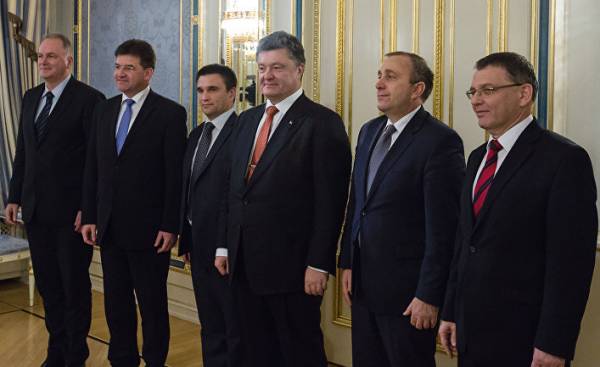
Interview with Jerzy Nowak — a diplomat with 50 years of experience, Deputy Chairman of the analytical centre “Euro-Atlantic Association” (SEA).
Gazeta Wyborcza: Now is a good era for diplomats?
Nowak, Jerzy (Jerzy Maria Nowak): When States are turning to power methods, the role of diplomacy is reduced. Three years ago, one state for the first time after world war II annexed the territory of another. Collapsing before our eyes, the system established after the cold war. In the early 1990-ies, it secured a number of multilateral agreements relating to matters of policy and strategic disarmament, including the Budapest Memorandum, the four nuclear powers guaranteed Ukraine’s territorial integrity. This system lasted until 18 March 2014, i.e. before the annexation of Crimea, where Russia has violated several principles of the “Helsinki Decalogue” of the conference on security and cooperation in Europe.
— The world has not coped with the task, allowing Putin to carry out the annexation?
— Partly Yes. In international law there is no tools that can be used when the UN security Council is not able to make a decision. We can call the aggressor a criminal, but in the nuclear world to make his retreat impossible. We can impose sanctions, but they are ineffective.
When the system collapses and the international order, usually starts a war. In the New time history 12 of 15 situations in which some power wanted to change the order ended with the war.
— You are not exaggerating?
These are the precedents. Will there be a military confrontation now, it is difficult to predict. However, these days it can take new forms, for example, struggle in the digital space. It is clear that the centers of power in the world began to shift: we are talking about Russia, China, India, or Iran (the regional scale) of Turkey. Changing the balance of forces within individual communities, for example, the European Union and even individual countries, for example, in the United States.
The situation has to be conflict, but many do not notice, because often this does not lead to hostilities. But they can begin at any time. We see increasing selfishness of the major powers that lead the game to the best way to build relations with other countries. When they can’t do it, there is a so-called syndrome of Thucydides. Thucydides described it on the example of the dispute between Athens and Sparta. Sparta built up its military power, Athens could not do anything about it: they failed to negotiate with the Spartans and give them a place in the new order. Lack of confidence and imagination led to the war which lasted 30 years.
We should ask the question whether Polish diplomacy to keep up with the developments and adjust their actions in connection with the shifts in centers of power?
The answer seems obvious.
— Sorry. If you listen to representatives of our leadership, may give the impression that everything is fine. At a meeting in late January, was organized by the Polish Institute of international Affairs (PISM), the head of the political Committee of the Ministry of foreign Affairs, Jan Parys (Jan Parys) told me that in foreign policy we have gained a lot of success. Example: trump is yet to assume office, a Minister Waszczykowski (Witold Waszczykowski) was already talking with its surroundings and with Kissinger; Washington, went the representative of the President and invited trump to Poland; the success was the NATO summit in Warsaw, we rise from knees, and so on. He also talked about the opposition, which only shouts and slanders, and its recipients are the embassies of the major powers in Poland.
The same things were said at such meetings in the 1970s: we are making progress, and the opposition is running to complain to a foreign diplomatic mission. Meanwhile, we are witnessing the weakening of contacts with France and Germany, the unexpected and the wrong choice of Britain as the main ally of Poland in Europe, not the dream of a land between the seas and Tremorfa, the collapse of the Weimar triangle, a support for the helpless actions of the defense Minister who wants to bring to the international level, the idea that the Smolensk catastrophe was the result of assassination. Weaknesses were also uncovered in the policies of the so-called East in our steps towards Russia, Ukraine and Belarus.
What we do with our diplomacy?
— She needs to realize that, whether we like it or not, Poland is a peripheral country of medium size, although it has great potential. This is our weakness and our strength, like the first foreign Minister of the new Poland Professor Krzysztof Skubiszewski (Krzysztof Skubiszewski). We were poor then (now it can be called, not too rich) country, but now and then such a state is not able to impose their will on others, models of partnership and cooperation. We are doomed to the unions that, on the one hand, gives us a strategic advantage, but imposes obligations. Alliances can be long-term and temporary, complex and individual. We are doomed to constantly conduct complex negotiations, to agree, but the current leadership is not able patiently to compromise.
It is negotiating from a position of strength?
— No, because we do not possess, it takes the position of a loudmouth with an inflated sense of self-esteem. Things in the world do not pay attention. If we want to achieve something, we need to engage in painstaking work to create the image of a reliable, stable and predictable partner. Looks like this image now, to explain too.
As the Minister Waszczykowski spoke in Munich with Frans Timmermans (Frans Timmermans)?
Exactly. Our Minister, as in the era of the Polish people’s Republic, responding to accusations about the destruction of our constitutional court, spoke about the principle of non-interference in internal Affairs. Instead of trying to discuss topics related to our interests, it dropped to the level of hassle.
The position of the authorities may at any time change. The speech of the Minister Waszczykowski in the diet, a year after the arrival of the party “law and Justice” (PiS) to power, was perhaps a signal that the government is ready to look at the situation in the world more realistic.
All this gave the impression of verbal gymnastics, especially the thesis that Poland is a safe country. No need to be an expert to see how the deteriorating situation in this respect, the stability becomes less, appear even questions about guarantees of our security. We can’t afford to live, indulging in illusions, you need to be able to anticipate the negative effects in time and to prevent their occurrence.
As for the perspective shift of thinking, you first have to take a new look at reality and to change the approach to the experts. For the first task you need to have the courage to break free from the ideological shackles of party. For the second to refer to real expert knowledge. Quite often, people in the know call the foreign Ministry dissatisfaction. The result was to blur the line between experts and Amateurs, between those who possess knowledge and those who want to please the authorities. Representatives of the ruling circles often forget that “patriotism” (i.e. the love of “Law and Justice”) is not knowledge. The ignorant and the opportunists start to play the first violin. This is compounded by the effect of Dunning-Kruger: you’re an idiot if you don’t believe that they are such.
— What is the real diplomat?
— It needs to have a comprehensive education and years of experience to be able to build bridges and make compromises, but first and foremost — to be able to make friends, which is especially important in an age of chaos. Our diplomacy is not ready.
We live in a unfavorable for small and medium States times, but our diplomats, surprisingly, directly and indirectly appealing to the idea of great power. How can there be here Intermarum?
— Intermarum, Creemore, leadership in the visegrád group, the desire to get up off his knees, and so on. This position reflects, rather, our complexes, it does not correspond to reality.
— We have a number of strong Russia, who is unknown in the United States, migrants with whom can’t handle Europe, Pexit.
— Need to refocus on effective participation of Poland in activities of the integration unions: EU, NATO, the Weimar triangle.
— In Warsaw there has passed the summit of the Alliance, and on our territory, even had the U.S. military.
— I’m not sure that our position in NATO is as strong as the government says about it. I think she is becoming weaker. In a staff-NATO apartment look at us as eccentric, which lifts all around. The voice of Poland do not listen. It remains an important state, but from this nothing follows.
— What is the image of the Minister of defence of Makarevicha Anthony (Antoni Macierewicz)?
— I’ve watched him since 2006, when he was still representative of Poland to NATO. His explanation related to the dissolution of the Military information service, already looked strange and pointless. Now his actions weaken the position of Poland in the Alliance.
— How?
— I’ll use a recent example. At the meeting of defence Ministers of NATO countries in Brussels, he focused on finding allies who will help us in the investigation of the Smolensk disaster. When he was trying to get away with promises to be understanding, he could not distinguish between diplomatic courtesy from reality, although it was clear that the Alliance is not engaged in the study of aircraft accidents. It was in that moment, when they discussed the strengthening of the command structure in Europe, and we have a chance to strengthen our centers in Szczecin and Bydgoszcz. Our Minister has acquired a reputation for being unpredictable, unprofessional, unreliable, and sometimes even frivolous policy. No one will say it openly, but take this into account in their actions and decisions.
Raises questions the idea of the territorial defence forces, who will report to the Minister. Experts say that it weakens the army: the money goes to domestic purpose and not for the modernization and protection of the country from external threats. The Minister doesn’t have a good concept of development of the fleet ballistic missile and air defense, in which we are not strong. We have established a good special forces, but in war they will not be able to play in defence a decisive role.
— How to talk with Russia?
— Russia is playing with marked cards. His strength in the sphere of security it must decision-making system, which is in the hands of one person. Now she’s interested, rather, not to increase their territory, and in the propagation of their effects in Ukraine and post-Soviet countries. The range of interests of the Kremlin also includes former members of the Warsaw Pact, including Poland.
How to talk with Moscow? Interesting tip gives a Foundation named Stefan Batory in the report that in October last year, wrote to former Ambassador of Poland in Russia Katarzyna pelczynska-Nalecz (Katarzyna Pełczyńska-Nałęcz). First, you need to command the game in the EU and NATO, second, to bet not only on deterrence but also on the dialogue, the third is to take a proactive stance in the European Union (to participate in shaping the Eastern policy), fourthly, to restore the communication channels, the fifth, to put strategic interests above private ones. It is a great realistic project.
— What happens to it?
Nothing. I have not heard that any government forces are interested in this proposal.
— In that case, we should focus in addition to sanity: the EU is threatened by disintegration, unpredictable trump?
— It will be reasonable to play (preferably together with Germany) the role of factor that strengthens Europe. Should cooperate with the United States, with closest neighbours, including with the Scandinavian countries. There’s no other way. Or we stay in Europe, or fall under Russian influence.
— Writes about this in his open letter to Donald Tusk (Donald Tusk). In addition, he advises to use caution towards America is trump. Our leadership, the government and the President, has called this letter a mistake, believing that it can harm our relations with Washington. In their opinion, speak negatively about the American President there should not be.
In my opinion, the letter Tusk was smart and brave, because he calls for a new look, which is so essential for us. This text is not to spoil relations with the US, and offers to see how politics trump American interests will prevail over the General, multilateral interest that unite the West. There’s also a sound idea that the collapse of the Western community will have tragic consequences, including for Poland. However, the Americans took into account the criticism of trump, as evidenced by the meeting and conversation between Tusk and Vice President of the United States at the Munich conference.
After 1989, much has changed, however, Poland remains a country that can be put on the back burner, that is to lead to what, as foreign Minister, was so afraid of bronisław Geremek (Bronisław Geremek): its peripherization. This prospect seemed to him a tragedy, and he was absolutely right. Now Poland has become a stronger partner, we strengthen the economy and established relations with Germany, but, surprisingly, to push us to the periphery has become easier than in 1989.
Why?
— Then we were weak, and the Western allies could pull the plug on us. They didn’t do it, because we played with the idea of solidarity and bring to Europe something new. Our economic situation became more stable, but since we are not creating bright ideas and put ourselves into isolation, moving to the East, it is not enough. If, for example, will need to make a choice between Russia and a weak Poland, we are, unfortunately, unable to turn away. Now we are violating the principles of democracy outlined in the “Copenhagen criteria” of the EU, and demonstrate the lack of professionalism in diplomacy, and so they move themselves to the periphery.
— What will happen with Ukraine?
— I think it can go in the direction of a “Yalta agreement”. It will be (about it already wrote Henry Kissinger) that Ukraine will receive the status, which will resemble the situation in Finland during the cold war. She will be able to deal with its internal economic development, working with Europe, but won’t be able to make decisions related to security. It may sound cynical, but if Ukraine freely and without pressure agreed to this decision, it would change the whole situation. Of course, I’m talking about one of possible variants of development of events, but the years spent in diplomacy have taught me that most often the reality be “unimaginable” scenarios, such as the collapse of the Soviet Union or the rise of China.
— Crimea will forever remain part of Russia?
— If such a “Yalta agreement” will appear, the question of Crimea will have to decide. For example, you can think that Russia and Ukraine will drive the Peninsula, ostensibly together, but de facto it remains Russia, because there are Russian military.
— What can you say about Hungary, which our management considers a role model, but which is an ally of Putin?
Is an example of cynical pragmatism, which may be for small and medium States are very dangerous. If we orientirueshsya to Hungary, it only says that we are not able to think in the categories of real and estimate. We came up with the idea to become a regional leader, but no country in Central Europe will not support us. Hungary and the Czech Republic on our leadership does not agree.
— Will not destroy Europe’s growing nationalism, populism, the wave of migrants and “postprod”, which is impossible to win in the Internet era?
— Surprises can’t be ruled out, but I don’t think Le Pen will win in France’s victory.
— The French are afraid of her promises?
— The majority of voters will prefer caution. The Europeans know what were the promises trump or Kaczynski (Jarosław Kaczyński), serve as a warning. The EU will survive, but will choose the strategy “Europe of different speeds” in which we will stay on the periphery. Unfortunately, in this we are guilty.
— You graduated from the diplomatic University. Whether you want to train diplomats?
— Of course! We were perhaps the only country in which after Witold Waszczykowski has closed Diplomatic Institute Ignacy Paderewski (Ignacy Paderewski), left educational institutions of such profile. It is known that preparing a new law on diplomatic service, in the end it will leave all those who started working prior to 1989, and possibly later, because we gained true sovereignty only after the election victory of the party “law and Justice”. Our diplomacy will be deprived of tradition, continuity and professionalism. Most likely, will dismiss all those who studied at MGIMO. This happens in the moment when at MGIMO tend to get the representatives of the French, English, American diplomacy, to learn of a potential enemy and partner, to learn his language.
What is the force of this Moscow University?
— High level of education. There great for learning languages, the history of diplomacy, diplomatic skills are taught.
— What is this skill?
Is a set of elements consisting of knowledge, intelligence, exploring the world and foreign cultures, language skills. There is a place for art: intuition and imagination, dexterity and tact, eloquence and creative thinking, talent and charm. You need to have a certain psychological predisposition to work and to understand your ethical duty. Performance like a diplomat “is deceiving for the sake of his country”, is wrong. In the era of globalization and Internet, he will fall at the first deception. In good universities of France, USA. The UK, Russia and other countries to teach not only the theory of international relations, the conduct of diplomatic correspondence, diplomatic and consular law, but all of these things. Of course, the graduate of another University may also be a good diplomat, but respecting the diplomatic service allow him to improve their skills.
And then such a person will not be called Minister of silly steps, which makes one mistake after another.
— People who graduated from such universities do not commit serious mistakes. But it is important not only training. Matter what the person’s character, not whether he possessed any ideology.


